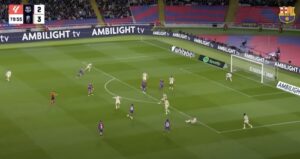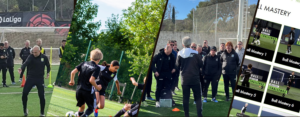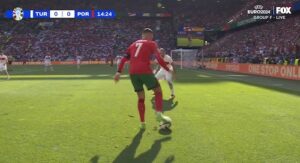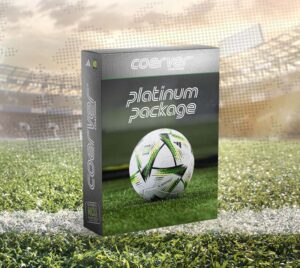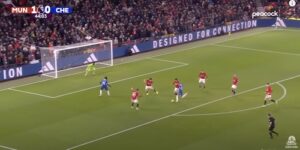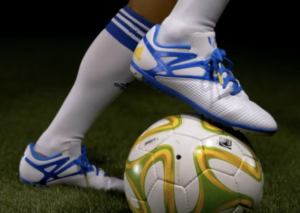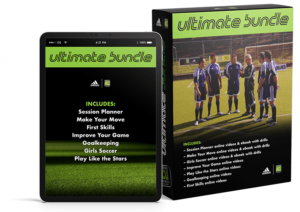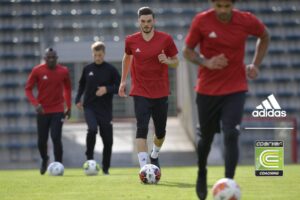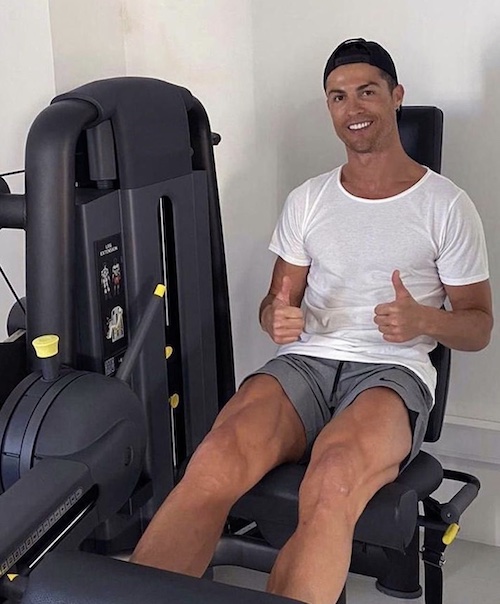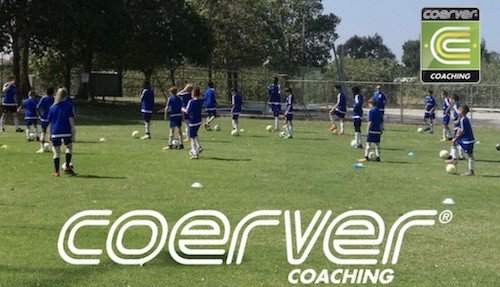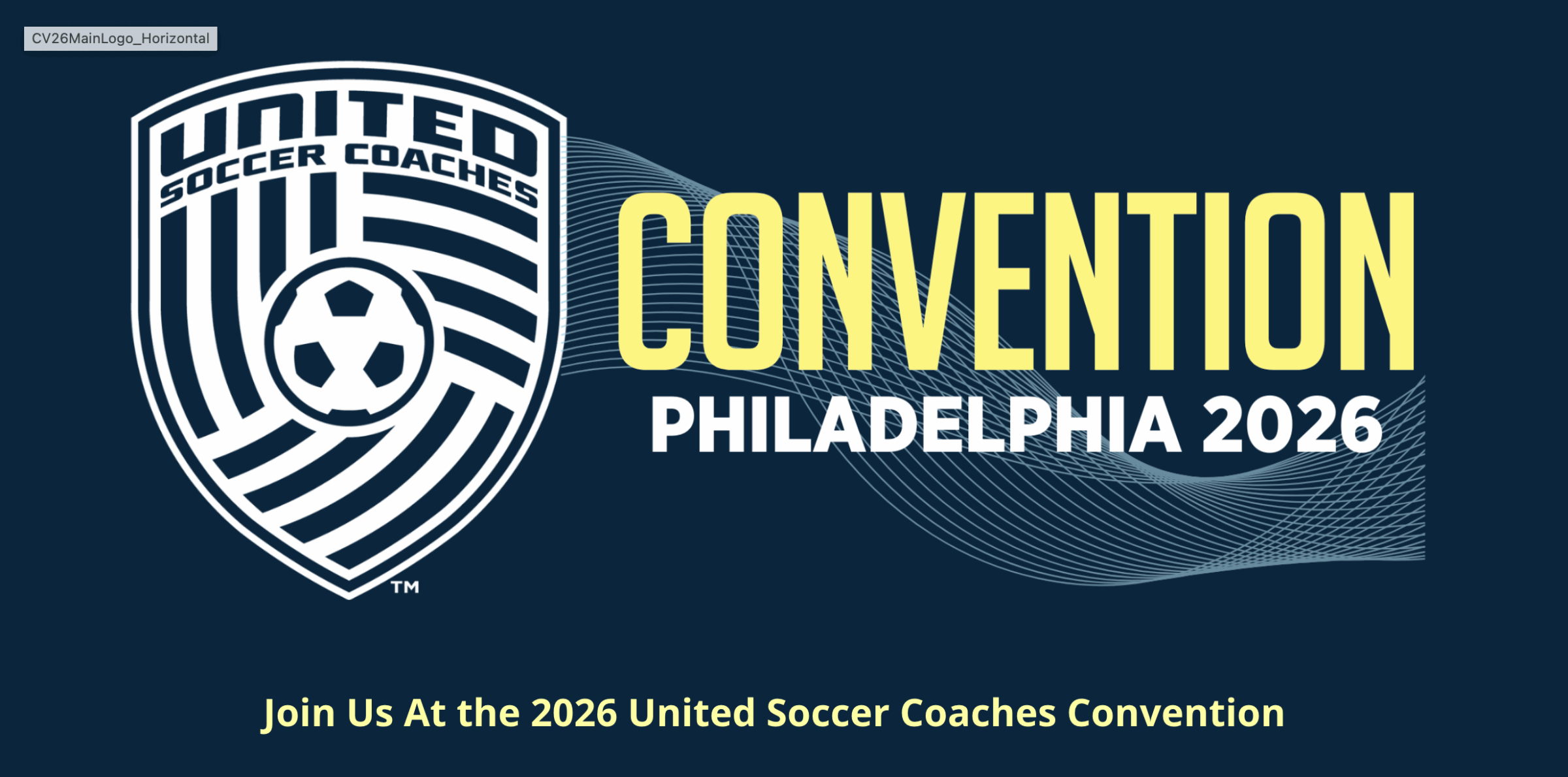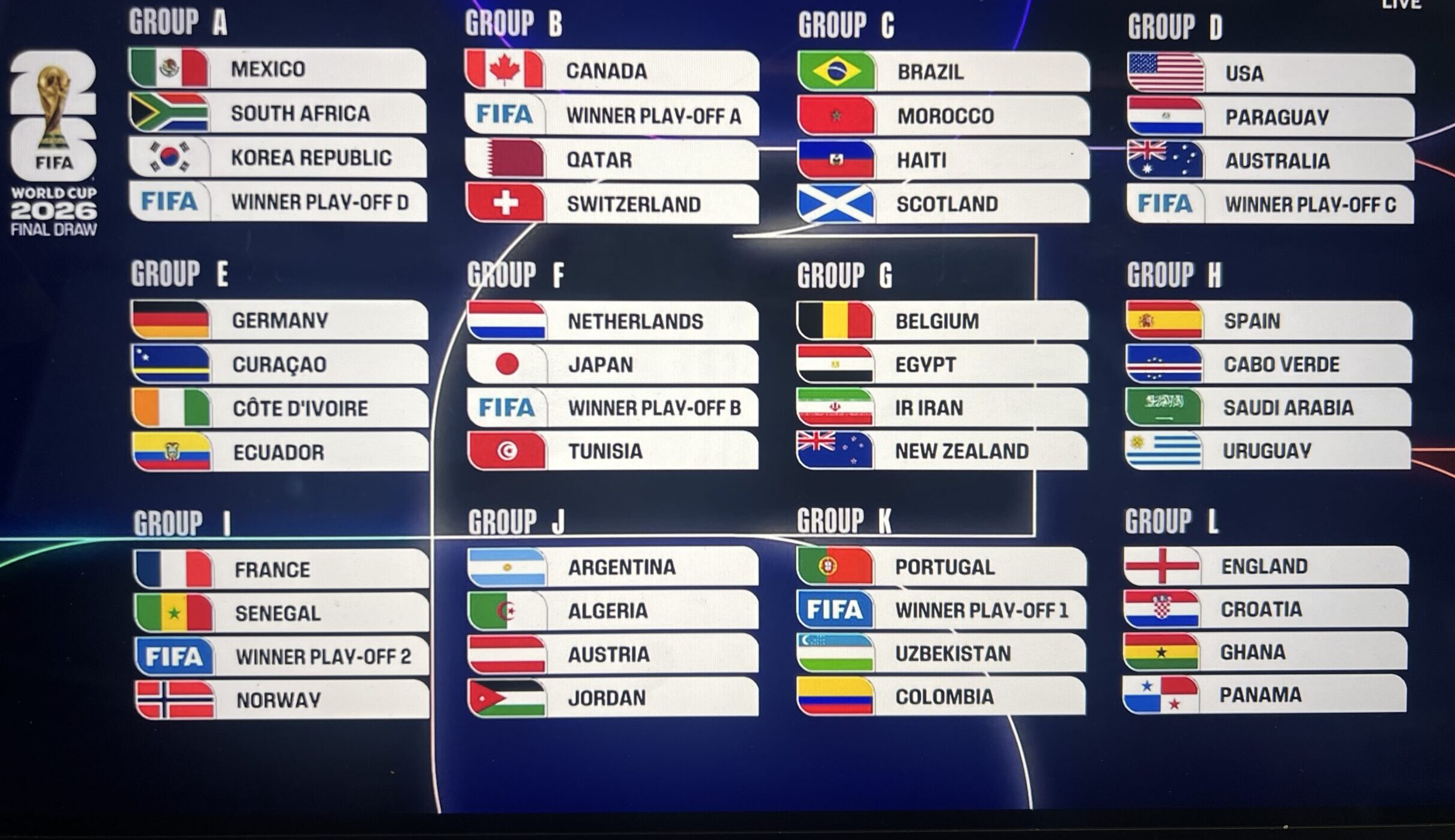Soccer legs: Here are some of the best soccer leg workouts for players trying to play top level soccer. Remember, with stronger legs you can run a lot faster, kick the ball with more power, and shield and protect the soccer ball better. Strong legs give you a good foundation to hold on to the ball and push off in different directions. Maradona wasn’t very tall but he had an incredibly strong foundation and enabled him to fight through opposing players and shield the soccer ball.
Image credit for above picture goes to Cristiano Ronaldo of course. During the lock down from the Covid pandemic Ronaldo worked out more at home and ended up coming back to the game stronger and faster than before!
You can usually spot a soccer player at a gym. How? Well, for one thing, most people who lift weights want to bulk up their upper bodies. Soccer players, on the other hand, want to strengthen their lower bodies, which means they’re almost always focusing on leg exercises. But most soccer players already have strong legs just from running up and down the field. The leg workouts at the gym are to maintain that strength and prevent injuries.
Sure, and then there are those non-soccer players at the gym who want to have legs as strong as Cristiano Ronaldo, with the crazy veins popping out and the giant quads, just for vanity’s sake. Most soccer players though want strong legs to build up power and speed on the soccer pitch.
Cristiano Ronaldo shocked Juventus’ doctors. Back in training after a three month break, Cristiano Ronaldo performed amazing in physical tests. Ronaldo has improved both his speed and his strength! Watch this video from OhMyGoalNews on Ronaldo and how he performed on his training tests.
Strong legs can make for fast legs and thus a faster soccer player. And this is where weight training can help you create both powerful and fast legs. And what about all that kicking, sprinting, jumping, and passing you’ll be doing on the soccer field? You won’t be able to kick a ball very hard without strong legs, especially late in game as it moves into injury time. So focus on these leg exercises to increase your power and speed.
Before doing any weight lifting, there are two points to remember. First, you should warm up with a few lightweight sets to adjust your muscles. Second, fine-tune your program to fit your needs and abilities. Some people will say, “lift until you fatigue,” while others recommend that you do a bare minimum to avoid excess muscle. The evidence for both sides is convincing, but most times the truth can be found by listening to your body. If you find that your speed is suffering from lifting to fatigue, then just do enough to promote muscle maintenance. Adjust your routine to fit your performance, and you should be fine. If you’re still concerned, consult a trainer or coach.
What’s lost on many soccer players though, who think they don’t need to do leg workouts, is how these exercises help prevent a lot of injuries. So you don’t need to over work your legs, since you’re doing a lot of sprinting, jumping and cutting on the field, which builds leg strength, but additional weight training is smart since it will help reduce injuries related to the knee.
Listed below are exercises that all soccer players should focus on. And the best soccer leg workout you’ll find online. So let’s get started, shall we:
Squats – Start doing these on a support frame, say a Smith Squat, for example. This will keep your back straight and will familiarize you with the motions of the exercise. To get started, place the barbell behind your neck, on top of your shoulders. Then, descend until your thighs are parallel to the floor. Return to a standing position and repeat. Keep your back straight!
Emphasis: gluts predominantly, but also works the forefoot and heel by virtue of the weight’s pressure.
Leg Press – Several machines are available for this, but the most common is the type where you lie down on your back with your legs elevated at a 45°. Once situated in the machine, put your feet on the platform and then push forward.
Emphasis: gluts and quads, with assistance from adductors and back leg muscles.
Barbell Lunge – First, place bar on the back of yours shoulders, right behind your neck. Then, lunge forward on one leg and lower body to the ground by bending the other knee. Keep back straight! Return to standing position and repeat with other leg. You can also perform this exercise backwards.
Emphasis: A long lunge stresses the gluts, while a short lunge stresses the quads.
Side Lunge – Same as barbell lunge, but here you simply apply the same motions to your side. However, your lunging foot and knee should be pointing outwards in order to execute this move. Repeat on opposite side. It might take some practice to fully master.
Emphasis: A long lunge emphasizes the gluts, while a short lunge emphasizes the quads.
Leg Extension – You’ll need a machine for this. Sit down with back straight against the padded seat. Adjust the seat accordingly so that you can do the exercise comfortably. Then, simply put your legs behind the lever down below and extend your legs upward, keeping your back straight and butt seated. Hold your legs while extended for a second or two. Repeat repetitions until you feel tired.
Emphasis: quads, but you’ll feel a twitch in your neck muscles because these help keep your body seated. In other words, the neck works as a stabilizer.
Leg Curl – Certain machines require you to lie down, while others will allow you sit down. Whichever one you choose, the emphasis is the same. Keep your back straight at all times, without ever letting your body rising from the seat.
Emphasis: hamstrings mainly, but you’ll “feel the burn” in other back leg muscles.
Calf Raise – Position yourself within the machine by placing shoulders underneath padding. Then, simply lift up off the ground using your toes. Basically, you’re stand on your toes, then flex several times until you feel your calves getting a workout!
Emphasis: calves.
Hyperextension – There are special frames for these at the gym, and most will vary according to the position in which you’re to do the exercise. For example, some will force you to lie down, while others will require your body to be leaning at a 45° angle. Whichever one you choose, the emphasis is the same. In all cases, you’ll be raising your upper body, usually from a 90° angle. Or other times, you’ll be lying down, then raising your upper body into a position that looks like you’re kneeling. Also, you can use weights such as barbells.
Emphasis: hamstrings, with a slight emphasis on the back leg muscles.
Hip Adduction – Sit in machine and make adjustments according to comfort. Simply move legs together through adduction of the hip.
Emphasis: hip adductors
TIP: Increasing repetitions won’t make you stronger. It’ll only make you tired faster! Instead, increase the amount of weight you’re lifting. You’ll increase strength and you won’t feel as exhausted.
There are many more leg exercises to do as well, and there are different ways to do those listed above. See what works for you! Now let’s move on to your core, or more specifically in this case, your lower abdomen. Try these on for size.
Side Bend – Some machines require you to sit down and bend towards the side. Others require more complex motions, such as moving your entire torso up and down from a 45° angle. Choose wisely!
Emphasis: obliques.
Side Twist – Sit on a bench, with your back straight as a board and your arms holding either two dumbbells or one barbell. Then, simply twist your waist to both sides. But don’t twist too far. Only go to where your shoulders are normally situated while rested.
Emphasis: obliques.
Crunch – We all know what a crunch is by now. And soccer players must do them. Use weights to get stronger abs.
Emphasis: abs.
Jackknife Sit-Up – First lie on the ground. Then, lift knees and head until they meet in the middle (i.e. your midsection), and return to horizontal position.
Emphasis: abs.
Learn more: Who Needs a Gym Membership?

